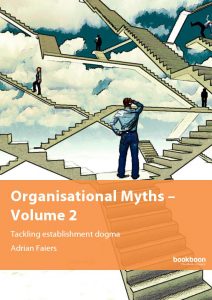Grow or die! Is the growth choice really that stark?

 For many organisations, and certainly most businesses, ‘grow or die’ is a virtually unchallenged mantra. Growth is even the key objective of national economies and shrinkage in GDP two quarters in a row has its own negative descriptor, recession. Adrian Faiers questions whether this is right.
For many organisations, and certainly most businesses, ‘grow or die’ is a virtually unchallenged mantra. Growth is even the key objective of national economies and shrinkage in GDP two quarters in a row has its own negative descriptor, recession. Adrian Faiers questions whether this is right.
What’s the point?
Nobody could deny that large scale growth of an organisation can make its top people very wealthy. But at what cost? What’s the point of relentless growth if it simply makes a few people unnecessarily wealthy while many of those who help to achieve the growth claim to have insecure and poorly paid jobs, along with poor working conditions, as ultimately voiced in protests and strikes?
Naturally, those at the top of such organisations deny such claims and, of course, it is also true that organisations are unlikely to grow if they are not offering something people want. Often the fastest growing organisations come out top in customer satisfaction surveys.
However, not only can customers be notoriously disinterested in the human cost of their own satisfaction, but the biggest organisations are not always those which generate most satisfaction – some of the UK’s utility companies are witness to that, coming out bottom in customer satisfaction surveys.
Managing anxiety
With the questions about growth in mind, is it also possible that unnecessary organisational structures have evolved to shield those who most benefit from growth? Such structures may represent an overprotective attempt to manage the ambiguity and uncertainty which cause those at the top anxiety about their own futures as much as concern about the organisation’s future. Perhaps this fear is what leads to resources being wasted on too much budgeting, planning and reporting, or on what Professor David Grueber calls ‘bullshit jobs’.
Naturally, many businesses claim that the more they grow, the more wealth they generate and the wealth trickles down, not least via the increasing number of jobs they create. However, the trickle down notion is now largely discredited.
And while it may be expected that trade unions would put a necessary brake on many of the consequences and excesses, more widely unions still buy in to the underlying belief that economic growth is good for everybody.
All is not lost
Even current vocational education seems to be designed to validate the philosophy and background of those at the top.
However, all is not lost and changes to vocational education would be a good place to start a move towards a new approach. For example vocational education could place more emphasis on relevant skills training at the coal face rather than generalised theory gained in academic establishments, which often have more interest in clever ways of reframing the status quo than they have in paradigm shifts.
Hence also, the academic approach itself needs a shake-up. Old school economics needs to be replaced with 21st century ideas such as those outlined in Kate Raworth’s book, Doughnut Economics. The book proposes that, rather than generating growth whether or not we thrive, we should look for strategies which enable everybody to thrive whether or not economies (or organisations?) grow.
Although this arguably represents the kind of paradigm shift we need, in many ways Doughnut Economics suggests little more than a rebalancing of the current mixed economy, providing tools to both direct and assess any adjustments. The proposed rebalanced model, which will be ‘distributive and regenerative by design’, is surely both desirable and necessary, not least in a world with growing population and shrinking resources.
Key question
Nevertheless, there is an obstacle even to modest adjustments of this type.
Perhaps the most challenging question is one that needs to be answered by the unnecessarily wealthy people at the top: Do those whose self-esteem and self-worth come from disproportionate wealth have the right emotional qualifications to lead important organisations? The circumstances of many workers who help to provide their wealth may suggest not.
This article was written by Adrian Faiers. Read “Organisational Myths – Volume 2” in which Adrian unpicks more organisational dogma.

